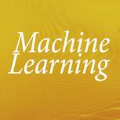Simulations of large-scale plasma systems are typically based on fluid approximations. However, these methods do not capture the small-scale physical processes available to fully kinetic models. Traditionally, empirical closure terms are used to express high order moments of the Boltzmann equation, e.g. the pressure tensor and heat flux. In this paper, we propose different closure terms extracted using machine learning techniques as an alternative. We show in this work how two different machine learning models, a multi-layer perceptron and a gradient boosting regressor, can synthesize higher-order moments extracted from a fully kinetic simulation. The accuracy of the models and their ability to generalize are evaluated and compared to a baseline model. When trained from more extreme simulations, the models showed better extrapolation in comparison to traditional simulations, indicating the importance of outliers. We learn that both models can capture heat flux and pressure tensor very well, with the gradient boosting regressor being the most stable of the two models in terms of the accuracy. The performance of the tested models in the regression task opens the way for new experiments in multi-scale modelling.
翻译:大型等离子系统的模拟通常以流体近似值为基础。 然而, 这些方法并不能够捕捉完全动能模型可用的小规模物理过程。 传统上, 实验性封闭术语用于表达Boltzmann方程式的高顺序时段, 例如压力拉动和热通量。 在本文中, 我们建议使用机器学习技术作为替代方法来抽取不同的封闭术语。 我们在此工作中展示了两种不同的机器学习模型, 一种多层透视器和梯度加速递增器, 如何合成从完全动能模拟中提取的更高顺序时刻。 模型的精确性及其概括化能力被评估并比作基线模型。 在通过更极端的模拟进行训练时, 模型显示比传统模拟更好的外推法, 表明外推器的重要性。 我们了解到, 两种模型都可以捕捉热通量和压力振动振动器, 两种模型在准确性方面最稳定。 测试过的回归模型的绩效为多尺度建模的新实验开辟了道路。





